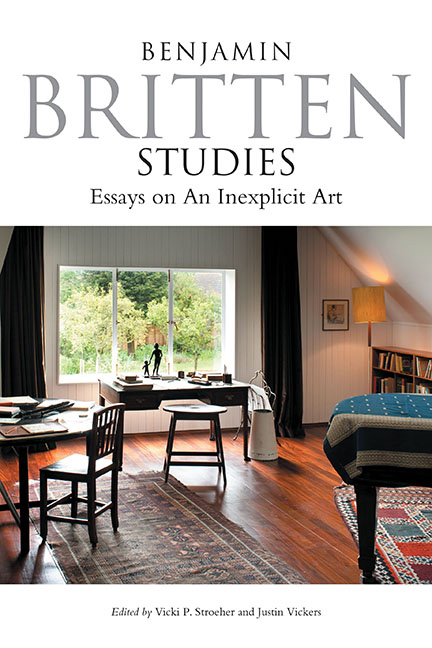Book contents
- Frontmatter
- Dedication
- Epigraph
- Contents
- List of Illustrations
- List of Musical Examples
- List of Tables
- Notes on Contributors
- Acknowledgements
- Bibliographic and General Abbreviations
- Editors’ Preface
- Introduction: Writing About Britten
- Part I Identity: Exile and Return
- Part II Britten and Intimacy
- Part III Britten and His Craft
- Part IV Britten and Matters of Practicality
- 12 Reviving Paul Bunyan
- 13 Striking a Compromise: Britten, British Publishers, Soviet Theaters, and the Premieres of Peter Grimes and The Prince of the Pagodas
- 14 From Boosey & Hawkes to Faber Music: Britten Seeks a “Composer's Place”
- Conclusion and Epilogue
- Works Cited
- Index
14 - From Boosey & Hawkes to Faber Music: Britten Seeks a “Composer's Place”
from Part IV - Britten and Matters of Practicality
Published online by Cambridge University Press: 25 October 2017
- Frontmatter
- Dedication
- Epigraph
- Contents
- List of Illustrations
- List of Musical Examples
- List of Tables
- Notes on Contributors
- Acknowledgements
- Bibliographic and General Abbreviations
- Editors’ Preface
- Introduction: Writing About Britten
- Part I Identity: Exile and Return
- Part II Britten and Intimacy
- Part III Britten and His Craft
- Part IV Britten and Matters of Practicality
- 12 Reviving Paul Bunyan
- 13 Striking a Compromise: Britten, British Publishers, Soviet Theaters, and the Premieres of Peter Grimes and The Prince of the Pagodas
- 14 From Boosey & Hawkes to Faber Music: Britten Seeks a “Composer's Place”
- Conclusion and Epilogue
- Works Cited
- Index
Summary
In July 1964 Britten accepted the inaugural award from the Aspen Institute of Humanistic Studies for his work in music, and Faber & Faber, who had recently welcomed him as their first house composer, marked the occasion by publishing his acceptance speech. “We are all very pleased that you have agreed to our bringing out your excellent Aspen speech,” wrote Faber Head of Music Donald Mitchell, “a really first-rate statement, I thought, which said so many things that have needed saying for a long while.” But Mitchell initially thought the title, On Receiving the First Aspen Award, presented a slight problem. “Obviously the Aspen Award must come into it,” he granted, “but I would prefer to have this as a sub-title to one more general and immediately musical. Have you any strong feelings about this? If not, Tony [Gishford] and I will think about it and hope for an inspiration that matches the text.”
After some deliberation, Faber eventually settled on the title “The Composer's Place,” to the point of publishing a draft of the speech under that heading. It was a plausible suggestion, for it could be argued that this title described Britten's core belief that a musician's place within society was primarily to be of use to people, to please them, to “enhance their lives.” But the title could have as easily described the circumstances and environment essential, from Britten's perspective, to achieving these goals. According to Britten, his own journey toward the composer's place was facilitated by a number of significant factors such as routine, stability, and lasting friendship: what he described as “roots,” “associations,” “backgrounds,” and “personal relationships” were all essential to enabling him to work comfortably and without distraction. The last of these conditions must have taken on an added meaning, for, at the time of writing his speech, the relationship with his former publisher, initiated when he was a recent graduate of the Royal College of Music (RCM), had, for what must be recognized as a variety of reasons, dissolved.
- Type
- Chapter
- Information
- Benjamin Britten Studies: Essays on An Inexplicit Art , pp. 405 - 428Publisher: Boydell & BrewerPrint publication year: 2017

